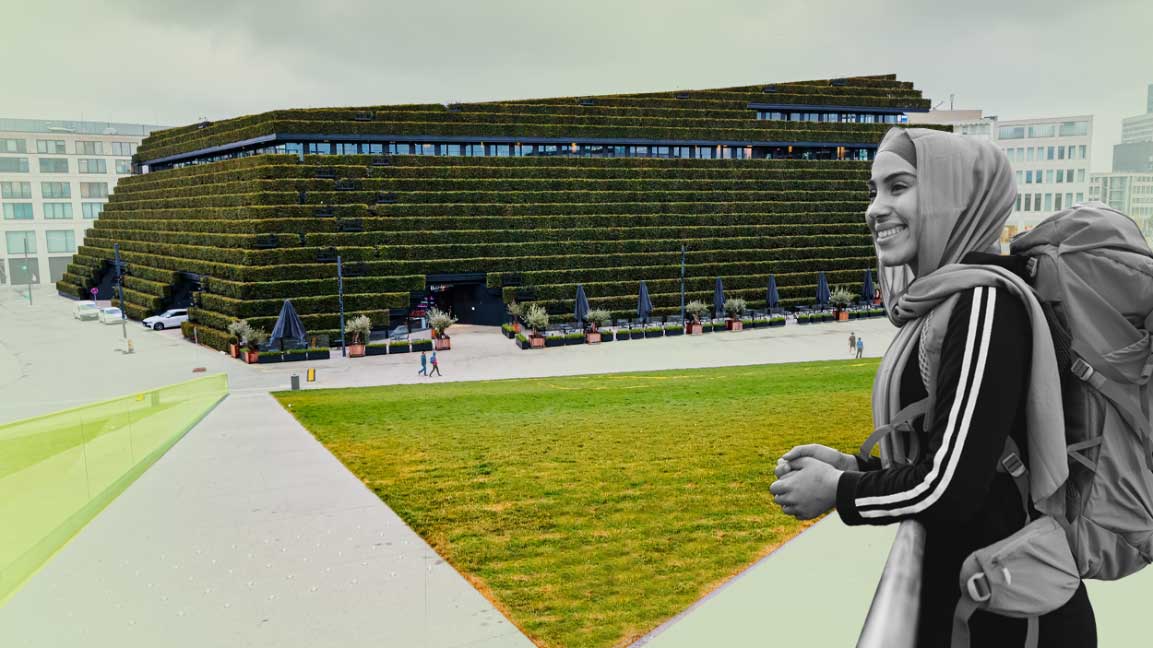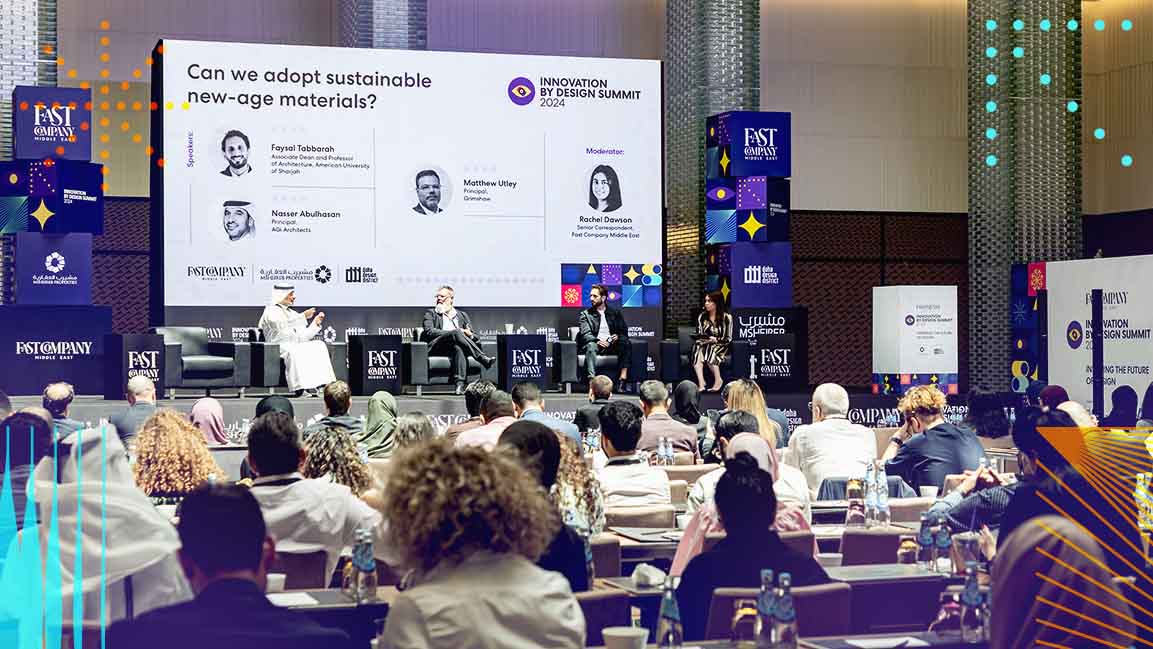- | 10:00 am
Germany is focussing on sustainable tourism. And Middle Eastern travelers are taking note
Can Middle Eastern travelers fuel Germany's green renaissance?

An estimated 235 million tourists traveled internationally in the first three months of 2023, more than double the same period in 2022. The Middle East led the way, which saw the strongest performance as the only region exceeding 2019 arrivals and the first to recover pre-pandemic numbers in a full quarter.
One of the top destinations on their list is Germany.
Known for its rich culture and diversity, it also prioritizes environmental stewardship, a growing priority among travelers.
In September this year, the German National Tourist Board (GNTB) revamped its ‘Feel Good’ initiative, now called ‘Simply Feel Good,’ to highlight Germany’s dedication to sustainable tourism, aiming to encourage a new era of conscious travel.
“Germany has been on the path to promoting sustainability nationwide for several years by implementing eco-friendly practices. With the campaign Simply Feel Good, Germany aims to inspire a new era of conscious travel, invites travelers to explore a wealth of eco-friendly vacation experiences, and focuses on creativity, passion, and the environment”, says Yamina Sofo, Director of Marketing & Sales Office – Gulf Countries at the German National Tourist Office (GNTO).
COMMITMENT TO GREEN TOURISM
Sofo says, “Our goal is to promote Germany as a destination that has everything a traveler could ask for – from exploring the off-the-beaten-track ‘stay a bit longer’ to the outskirts, the country promotes its diverse tourism offerings via different campaigns.”
Germany allows visitors to calculate their carbon footprint using the myclimate.org CO2 calculator to enhance travelers’ journeys.
By backing certified carbon offset programs globally, visitors can achieve carbon neutrality while traveling. This not only fosters an eco-friendly vacation but also supports social causes. Additionally, GCC travelers can select from various sustainable accommodations, including city and countryside hotels, and unique overnight experiences.
She highlights Germany’s diverse ecological landscape, home to over 300,000km of hiking trails along coastlines, islands, towering mountains, and dense forests. With approximately 50,000 animal and 20,000 plant species, natural experiences thrive throughout the country.
SUSTAINABLE EXPERIENCES
“More and more travelers are paying attention to sustainability – in both the leisure and business sectors. Demand has risen significantly in recent years. Of course, local tourism multipliers are switching their processes and products and paying attention to sustainability, says Claudia Neumann, spokeswoman of the Cologne Tourist Board.
Successful initiatives are believed to establish regional connections or are situated in gastronomy, creatively incorporating sustainable concepts such as those seen in the Chocolate Museum, EcoHopper app, Bunte Burger restaurant, and the Michelin-starred restaurant Maibeck. The Koncept-Hotel brand and the Modern Art Museum Ludwig are also future-focused with sustainable concepts, appealing to a crucial target group of guests.
Additionally, the GNTB collaborates closely with all 16 federal tourism boards in Germany, promoting mutual support and cooperation to enhance the overall product offerings of each region. It serves as a platform for local businesses to showcase their offerings globally, particularly emphasizing eco-friendly experiences and products.
This gives German businesses numerous opportunities to actively engage in events organized by the GNTO in the GCC market.
These events can take various forms, from physical gatherings to virtual activities. Participating in them allows German businesses to showcase their unique offerings, connect with a global audience, and promote eco-conscious experiences and products to a broader market, encouraging sustainable tourism practices.
“When people think of sustainable tourism, they usually think of vacations in nature or on a farm. We have noticed that this is also possible in urban areas. With the EcoHopper, we enable participation in tourism and consumption. Not only locations in the app benefit from this but also neighboring stores and citizens’ initiatives”, adds Oliver Szabo, Founder at Ecohopper.
THE LOCAL IMPACT
Offering sustainable experiences to travelers positively impacts the local economy and integrates three key criteria: economic, ecological, and social aspects. Specifically, travelers from the Middle East contribute significantly to the economy. A 2023 study conducted by MasterCard for Visit Düsseldorf indicates that Arabian Gulf travelers generate the highest spending per card, a trend representative of the average across all Magic Cities.
The study also reveals that Düsseldorf outperforms other Magic Cities regarding average spending per card and ticket size. In 2022, 35% of the spending by travelers from the Gulf states in Düsseldorf went to retail, while hotels accounted for 23%.
This heightened spending significantly benefits the local economy, particularly in the hotel and retail sectors, visibly impacting the tourist infrastructure and development of Düsseldorf.
Additionally, Düsseldorf Airport’s role as a mobility hub enhances the city’s global connectivity and plays a vital role in boosting its economic vitality. This impact is evident through increased business activities, job creation, tourism, and improved trade opportunities.
A spokesperson from Düsseldorf Airport believes the airport’s primary objective is to minimize environmental impact by curbing emissions, optimizing energy usage, embracing renewable resources, and implementing sustainable waste management practices.
“The airport is committed to reaching climate neutrality by 2035, aligning its objectives with those of Düsseldorf. The ultimate aim is to achieve net-zero emissions by 2045.”
Several local stakeholders have expressed interest in reinforcing activities in the UAE through collaboration with Visit Düsseldorf.
Additionally, Visit Düsseldorf has noticed a growing interest in sustainability and expanded its product portfolio.
According to a spokesperson, Düsseldorf boasts numerous sustainable initiatives. One example is the DüsseldorfCard, a ticket that includes local public transport and provides discounted or free admission to various sights and activities in the city.
Visit Düsseldorf has expanded its sustainable offerings with the DüsseldorfBikeCard, which offers discounts and a rental bike. On the other hand, the climate walk offers guided tours covering key sights and climate information.
Some platforms, like Xdeck, offer a curated elite acceleration program. Key features include highly individualized support, regular sparring, operational assistance, and intensive mentoring by experienced founders.
Dr. Markus Gick, Managing Partner at xdeck, says, “Our Accelerator and VC-portfolio startups are active in several fields to tackle the challenge from different angles. Xdeck startups are active in food waste reduction, CO2-emission reduction for residential buildings, and logistics.”
Neumann believes prioritizing sustainability boosts local economy appeal for conscious consumers. As products become more sustainable, the region attracts eco-conscious guests, driving economic growth.
And the Middle East’s strong interest in eco-friendly experiences boosts the German economy. It fosters a partnership that offers a mutually beneficial relationship between travelers and destination cities in Germany.








































